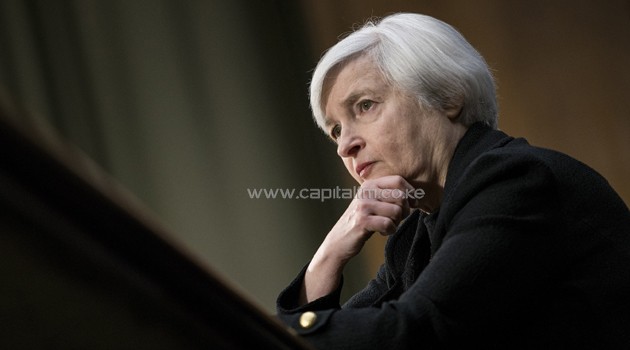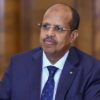Currencies from Argentina to Russia, South Africa and Turkey have been in freefall, in part because heavyweight US investors are repatriating funds in anticipation of higher returns at home as the Fed tightens years of relaxed monetary policy.
Deficit-ridden developing economies have plenty of thei
r own home-grown problems, but the evolving “taper” has become a lightning rod for global discontent as Yellen makes her international debut in charge of the Federal Reserve.Australian Treasurer Joe Hockey, who is chairing the meeting Saturday and Sunday of G20 finance ministers and central bankers in Sydney, wants to resist a “talkfest” and stay focussed on ways to stimulate growth and create jobs in the aftermath of the 2008 financial crisis.
“The G20 is at an important juncture. It must show it is able to act decisively to implement policy reforms outside of a global crisis. Complacency is our enemy,” he said, laying out a pro-growth agenda that was backed by US Treasury Secretary Jacob Lew in a letter to his G20 colleagues.
But Hockey added: “We will not ignore recent instability in international financial markets, and in particular, the impact on emerging market economies.”
The meeting comes soon after Yellen, in her inaugural testimony to Congress as Ben Bernanke’s successor, painted a steady-as-she-goes course for Fed policy including the wind-down of the post-2008 policies that flooded capital markets with cheap cash.
The Fed is keeping a close eye on market volatility, she said in the February 12 testimony, but offered little sympathy for the plight of emerging economies. And the US bank — in an accompanying report — said those countries should get their own houses in order first.
– ‘Not my problem’ –
Adam Hersh, senior economist at the Center for American Progress Action Fund, said Yellen recognised the concerns of developing countries about the impact of US monetary policy on capital flows and exchange rate volatility.
“She also seems to say ‘it’s not my problem’,” he added. “That’s not going to be welcomed by the developing country members of the G20.”
Indeed, according to Reserve Bank of India governor Raghuram Rajan: “The US should worry about the effects of its policies on the rest of the world.
“We would like to live in a world where countries take into account the effect of their policies on other countries and do what is right, broadly, rather than what is just right given the circumstances of that country,” he said at the end of January.
China’s capital controls and world-beating forex reserves have insulated the yuan from the turmoil seen elsewhere, but it is facing a gradual easing of economic growth that risks becoming another headache for G20 trading partners.
And even for China itself, the US taper is cause for concern, said Hua Min, professor of economics at Fudan University in Shanghai.
“Many emerging economies have seen their currencies depreciate by large margins and stock prices slump over the past month. This has rung the alarm bell for us,” he said.
Despite the Chinese deceleration and market instability, the G20 countries meet at a relatively healthy juncture for global growth prospects.
In January, the IMF increased its estimate for world growth this year a touch to 3.7 percent, after a 3.0 percent pace in 2013. It was the first time in nearly two years that the Fund revised its growth forecasts upward.
Mike Callaghan, director of the G20 Studies Centre at the Lowy Institute think-tank, said Australia should use its presidency to push for a comprehensive G20 strategy outlining how member countries will work together to put global growth on a new track.
The strategy, he added, must incorporate all aspects of policy — fiscal, monetary, financial, structural, tax, trade and development.
“Importantly, it should move away from a focus on rebalancing global growth and reducing external imbalances, and embrace the reforms needed to lift potential growth in all countries,” he said.















































